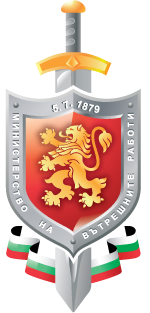Picture this scenario – the European Union imposes anti-dumping duties for a particular product, sunglasses for example, coming from an Asian country. All of a sudden, there is a sharp reduction in such imports from the country in question, but a significant increase in sunglasses being imported from a neighbouring state. Just a coincidence? Not for OLAF investigators, who, with access to state-of-the-art electronic tools, could realise this is a plot by fraudsters to get out of paying duties by falsely declaring the origin of goods.
In such transnational cases, having access to complete information on the route of a particular shipment is key. As of 1 September, customs investigators across the European Union will be able to use new electronic tools to combat customs fraud more effectively. Through an update of customs rules, authorities will be able to access new IT systems that record the physical movements of containers transported on maritime vessels and gather information on the goods entering, transiting and leaving the EU. These new instruments will allow the EU and its Member States to better track and trace suspicious shipments and to better detect customs fraud.
"Customs fraud is a drain on public budgets and we need to counter it with an effective and smart response" said European Commission Vice-President Kristalina Georgieva, welcoming the implementation of the new legal provisions. "Thanks to new IT tools, public authorities will be better equipped to address this challenge without disrupting legitimate trade" she added.
Customs fraud - for example, the misdeclaration of product origin, undervaluation, or misdescription of goods at import - causes significant damage to the EU’s financial interests. Given the transnational nature of such fraud, cooperation between customs authorities is essential.
In practice, the amended legislation which applies from today has prompted the creation of two new databases. Investigators will now be able to access a new Container Status Messages directory which gathers messages recording the movements of containers transported on maritime vessels. The directory will contain messages directly provided by maritime carriers. Similarly, an Import, Export and Transit directory has also been developed, containing data on goods entering, transiting and leaving the EU. Data relating to exports which will be gathered is limited to sensitive products, such as tobacco, alcohol and fuels. Customs officials as well as the EU anti-fraud office OLAF will be able to cross-check the information from both databases to detect potential fraud patterns. These new tools will strengthen the analytical capabilities of national customs authorities and OLAF in detecting fraudulent operations.
Moreover, the amended legislation will help speed up OLAF investigations by setting out deadlines for Member States to provide investigation-related documents. It will also 2 EN facilitate the use of information obtained on the basis of mutual assistance as evidence in national judicial proceedings.
For more information pleas visit the OLAF website.
